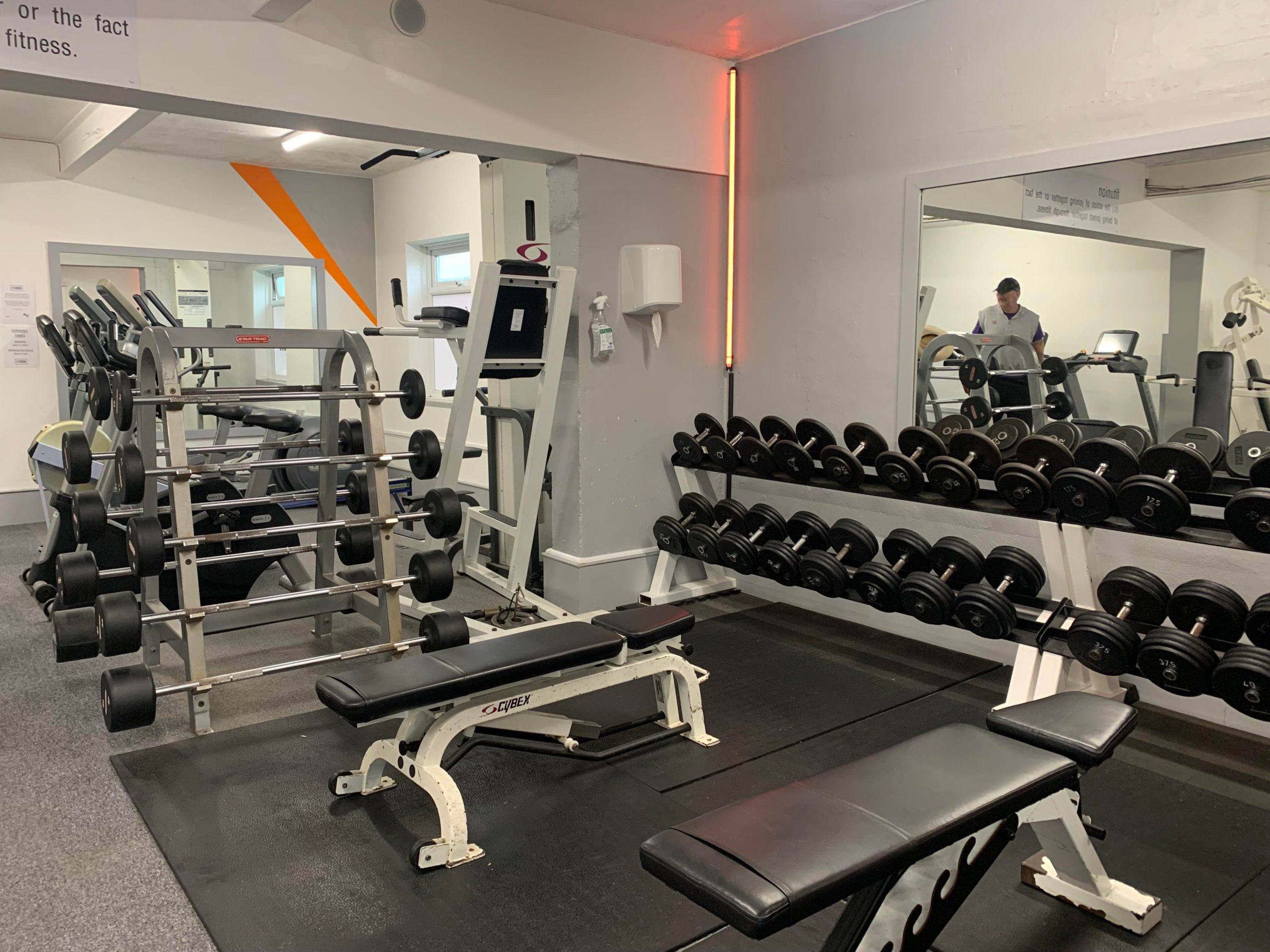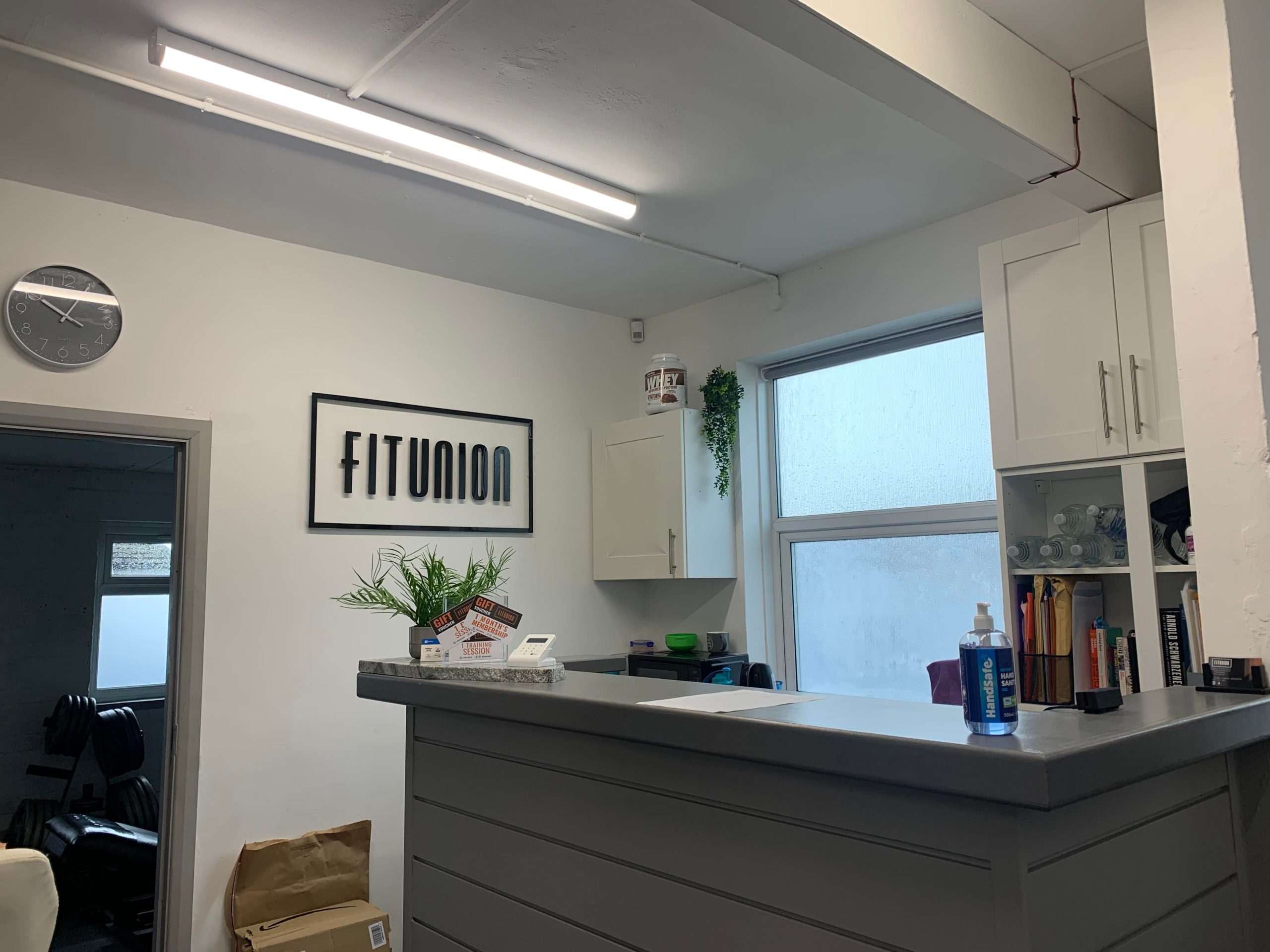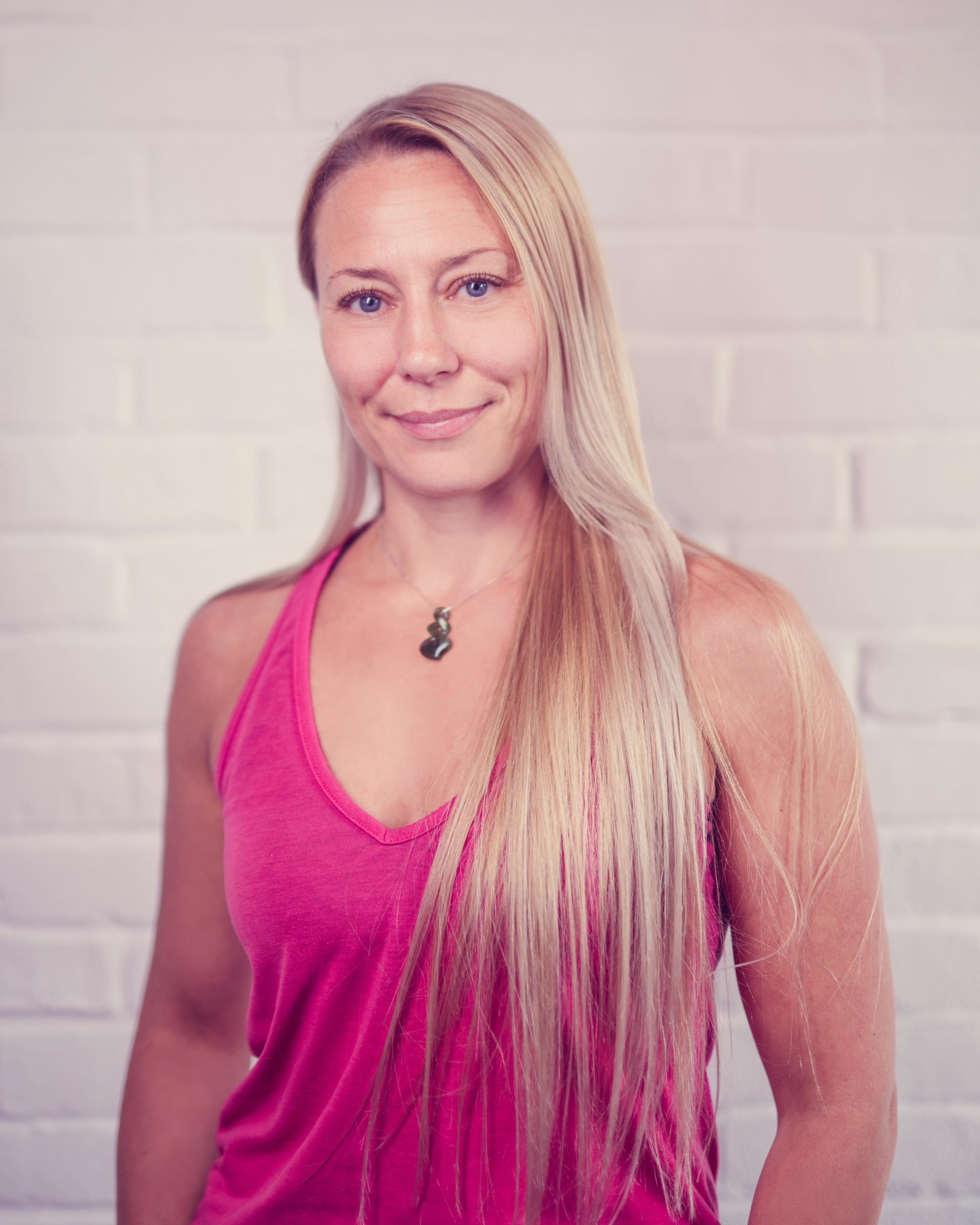Becoming healthier and physically active has become more popular over the recent years but people are still fearing the gym. Bethany Kellock reports on whether the demographic for the gym has changed.
Being physically active has been proven time and time again to be beneficial to our mental and physical health.
We have been told this by healthcare professionals, TV adverts, therapists and many more and in recent years people are seemingly striving to become healthier through working out more frequently.
Various forms of exercise are and have been proven to be effective, but a study from the International Health, Racquet and Sportsclub Association (IHRSA) shows that the users of gyms across the UK has increased.
The study showed that there has been an increase in gym memberships and in 2021 it states that 10.3 million people held a gym membership which is over 15% of the UK population.
This has almost doubled since 2015 where, in a study from Statista, only 5.4 million people in the UK were members of a gym.
Health and fitness trends have taken the spotlight and people are becoming more and more interested in leading a healthier lifestyle. This could be going to the gym, home workouts, walking, swimming and even more people are becoming plant based for the health benefits.
The interest into fitness has increased over the past 10 years where the amount of fitness and wellness trainers has increased by about a third from 41.9 thousand trainers in 2012 to 61.9 thousand trainers in 2022.
Alongside this growth it has been proven that over half of UK gym memberships are now seeming to be owned by women as shown in a study by the IHRSA.
In the 90’s and early 2000’s women went to the gym purely to be thin and lean which was seen as attractive by societal standards.
Now in 2022, women having muscles and being strong has been much more socially accepted due to also the increase in women in fitness on social media.
In the South East, a study by Better showed that 22% of people don’t go to the gym purely because they don’t have the confidence to go.
They showed that 40% of people said they don’t go to the gym as they don’t have enough time, which is the second largest factor as to why people don’t like or don’t want to go to the gym.
Kelsey Thomas, a 21-year-old woman from Ramsgate, used to massively struggle with going to the gym: “I just really lacked the confidence, and I didn’t really think I had the motivation to go to the gym consistently.
“I didn’t know what half of the machines did and it really put me off because I had no idea what I was doing.
“I think also there’s a fear that people are going to stare at you because you’re doing something wrong.”
A concern among a lot of people is the lack of confidence they have to go to the gym whether that may be because they don’t know how to do certain exercises, or they feel as though they’re going to be watched and judged for doing something wrong.
Kelsey explained that comparing yourself to other people in the gym is also a large factor as to why she was so apprehensive to start.
A study conducted by PureGym showed that 45% of women felt nervous about going to the gym if it seemed as though other gym users were fitter than they were. 29% of men felt the same way.
She goes to a very male dominated gym where to begin with it was very daunting but now after having been going for some time, she’s gained the confidence to go without worry.
She said: “I feel like now, because I’m so much more confident, I don’t really care.
“I don’t feel intimidated anymore compared to when I started out. I feel like anyone would through, as you carry on going to the gym and gaining confidence, you start feeling more like you can be in the weights section.
“It can feel sometimes like you’re in the way or you’re not supposed to be there, but I now know what I’m doing more I know I’m not taking up space or feel like I shouldn’t be there.”
I'm happier mentally which has changed literally every aspect of my life
—Kelsey Thomas
Kelsey has only been consistently going to the gym since May of this year and she has found that it’s improved her mental health just as much as her physical health. She explained that once she pushed herself further, she gained a huge love for the gym despite all of the things that put her off in the past.
Kelsey explained: “Before I started working out, I was in a really bad place. I wasn’t eating, I lost so much weight and I just wasn’t happy.
“I knew people that went to the gym, and I thought I needed to sort myself out, so I just started to go in stages essentially.
“At first, I hated it and I didn’t ever want to go back. I’m not really sure what happened but I think I got to a point where I was so unhappy, I just ended up re-signing up and slowly I started to really enjoy it.”
11.8% of people in the UK have said that they go to the gym for the mental benefits it gives them as shown in a study by Better.
Research from the NHS has shown that physical activity can reduce stress, anxiety, depression and the risk of dementia as well as increase your self-esteem, mood and sleep quality.
Kelsey Thomas explained how she has felt so much happier and mentally healthier since starting regularly working out: “I just kept seeing the progress I was making and I have so much more body confidence now.
“I’ve noticed my mental health is a lot better, so I don’t think about the people staring or worrying that I look stupid when I go anymore.
“I’m happier mentally which has changed literally every aspect of my life.”
Social media has been a big push into showing the changes in how people are using the gym to get stronger and create healthier versions of themselves. Fitness influencers are showing their workouts and routine to help other people feel inspired to start their fitness journey.
Fitness influencers such as Grace Beverley, Naturally Stephanie and Holly Brooks are a select few out of the thousands of influencers who try and inspire people to get into fitness and the ways to tackle lack of confidence within the gym.
Due to the push social media is having on fitness, some gyms are finding their members are growing more and bringing in a variety of people.
FitUnion, a small old school gym based in Birchington, Kent has found their demographic has increased its amount of interest with young people more recently due to social media.
Ben Blades, FitUnions owner, said: “I definitely think it’s more mainstream, and I think that social media plays a big role in that as well because there’s so many viral trends.”
A study from IHRSA showed that in 2019, more than half of UK gym members were female and that the age group of 55 years old and above is the fastest growing demographic.
The Birchington gym has a predominately male demographic and has a large percentage of older people attending.
“You can see that males [percentage] are a lot higher than the females [percentage] and maybe that’s because of what kind of gym it is.” Ben explained.
The gym is very much an old-style gym with a larger freestyle weights area and standard machines dotted around the building.
Their older members are generally regulars which Ben believes won’t change much even with a growth of members from other age groups.
Ben said: “I think that the older people will still come because it’s part of their routine and they’re more interested in the health benefits.”
Recently, their demographic has changed slightly which they believe has been largely contributed by social media.
FitUnions owner stated: “The biggest change has been the younger people being more interested.”
The gym used to have a member who they believe could have been a direct contribution as to why they were getting younger people to sign up to the gym.
Ben said: “We had a bodybuilder come here with I think around 50,000 followers, which, although he doesn’t come here anymore, at the time made people say ‘wow that’s him.’
“It entices people and I think it plays a big role in changing the demographic.”
Ben Blades worked at the gym while doing his apprenticeship and became the owner of the gym around nine months ago. Even through his apprenticeship he noticed the variety of people coming to the gym on a daily basis and the increase with the amount of young people signing up to FitUnion.
Ben Blades explains: “It’s a lot more popular to do it now so I think that’s improved our numbers of younger people that come in because its more popular and more appealing.
“I don’t think that when I was working back in the day, there was nowhere near as many young people, and I mean school age kids as well.
“There’s a lot more people that come here now around 16 with their parents. There are a lot more younger people that are actually getting into it.”
Due to social media, there are now hashtags on Instagram and Twitter such as #strongisthenewskinny with over 1.7 million posts that people are still using to post their workout selfies or progress.
Other hashtags such has #gymmotivation has 47.2 million posts, #fitness has 499 million post and #fitnessmotivation has 128 million posts.
Not only are people learning about fitness and going to the gym off of their own backs, but the increase in personal trainers across the UK has allowed for people to get help when it comes to being active and having no idea what you’re doing.
With the personal trainer numbers up to 61.9 million across the UK, there’s no lack in finding someone who can train you at a gym to help improve your fitness.
Generally speaking, any personal trainer can train anyone, however, there are some trainers who aim at specific demographics of people to work with.
Rebecca Quinn is a personal trainer from Deal that runs her own business, and she aims her demographic specifically towards women.
She has found that throughout her time as a personal trainer over the past five years, her clients are more comfortable to train with her than at a mainstream gym due to what she is able to offer them.
For me, I take huge pride in the job satisfaction.
—Rebecca Quinn
Much like a fair percentage of the South East population, a lot of Rebecca’s clients prefer to train with her than go to a gym due to confidence.
Rebecca Quinn explained: “They feel that they don’t like to be looked at, that they don’t like to be watched, or because they don’t actually know what to do with half of the equipment that’s in there and for whatever reason don’t want to ask for help because it’s embarrassing.”
Her current clients range from the ages of 24 years old up to 76 years old and she helps them with very specific requests that they feel they may not be able to get the help and support they need within a conventional gym.
“Generally speaking, they come to me with quite unusual but very specific requests.” She said.
“They feel a lot more comfortable because I’m a working in a private environment but also I’m a woman, I’m in my 40’s myself so they feel a bit more comfortable speaking with someone who is a little bit older, and they feel I can understand them a bit more.”
Since starting her business back in 2017, Rebecca Quinn hasn’t found that her demographic has really changed since starting up compared to gyms such as FitUnion as her key aim is to attract women who want personal trainers.
Specifically with older women, she has helped them with things such as being able to bend over to tie their own shoe laces, pulling themselves out of a bath and getting up and down from the floor.
Rebecca goes onto explain: “If you think about how many times in a day or a week you chuck your shoes on and do the laces up without even thinking about it and that person couldn’t do that and now, they can.
“For me, I take huge pride in the job satisfaction.”
Rebecca’s personal training sessions are also catered to people who are or have been injured whereas a personal trainer working at a gym may not be able to specifically cater to their needs.
She has helped women with basic things such as tying their shoelaces to making a huge difference by helping a woman who was in a horrific horse-riding accident.
She said: “I’ve has another client, or actually three or four, who have said they’ve has very serious injuries.
“Broken legs, broken hips, those sorts of things, really nasty injuries who have had their standard 6-week block of physiotherapy and have been left to crack on with it. That hasn’t been enough to give them the strength or mobility to continue with everyday tasks.
“So, getting up and down off of the floor, again something a lot of us take for granted, but if you had a serious hip injury, getting up and down off the floor is very difficult.”
Despite Rebecca’s main demographic being aimed at women, more recently her business has reached two men who she trains purely due to word of mouth.
A study by Insure 4 Sport showed that around 72% of personal trainers gain clients through word of mouth.
One of the men Rebecca Quinn trains has been very happy with what she has been able to offer him, but she always aims to stick with her target clientele.
The personal trainer from Deal explained: “I don’t want to turn anybody away really, but I do ultimately make sure that any advertising that I do I’m very clear on my demographic.”
Gyms, despite having a growth or change in their demographic, are still having a large portion of their members as younger males.
A member of a gym in Margate called Infinity has noticed that at his gym a lot more of the members there are predominantly male.
Cameron Bowmont, a 20-year-old man from Margate, said: “I’d say that eighty percent of people that go there are men probably between the ages of 20 and 30, obviously I’m just kind of guessing from what I see.
“There are a few women who go but the main women in there are the people that work there, I think.
“They hold some classes there which I think generally entices more women to come but yeah, it’s definitely a predominantly male gym.”
Intimidation within the gym is something that a lot of people seem to suffer with and similarly to Kelsey Thomas, other men also worry about going to the gym.
Cameron said: “Before I started going to the gym, my main worry was that people would be watching and judging me.
“When you’re in the gym, especially when its really busy, it can feel like people do judge you for instance if you’re doing it wrong.
“Like you know if you’re picking up a weight and your stomach looks too bloated or you’re pulling a face when you’re doing a workout. I still worry about it now but not as much as I did when I started.”
Cameron Bowmont started consistently going to the gym about three months ago and has found that going with a friend can help increase your confidence and he has found that you push yourself a lot more when you’re working out with another person.
A study by PureGym showed that across the UK, 49% of men and 67% of women feel intimidated when going to the gym.
By having a friend or partner to train with, this can help with gym anxiety and can have a positive influence on achieving your goals in the gym.
Cameron said: “I also go with one of my friends which I find really helpful because were able to encourage each other.
“I think I push myself more when I go with someone and it’s a lot less intimidating going with someone else.”
Statistics and studies have shown that there has been increase in the use of gyms as well as a change within the demographic.
The increase in women within the fitness industry has helped with this demographic change which could also be linked to the push for fitness across social media platforms.
It could also be driven by the estimation that around 35% of personal trainers within the UK are women as stated by Insure 4 Sport.
Many gyms are still typically male dominated, but more women and older people are gaining the confidence to go and take up space in the gym without feeling intimidation by other members.
It has been predicted by the government through UKactive that by 2030, there will be around five million additional members to gyms and leisure centres across the UK which means that 20% of the UK population will belong to a fitness centre.
The drive to create a healthier lifestyle for yourself has become more popular in recent years and with people tackling their fear of the gym the demographic will continue to change.







